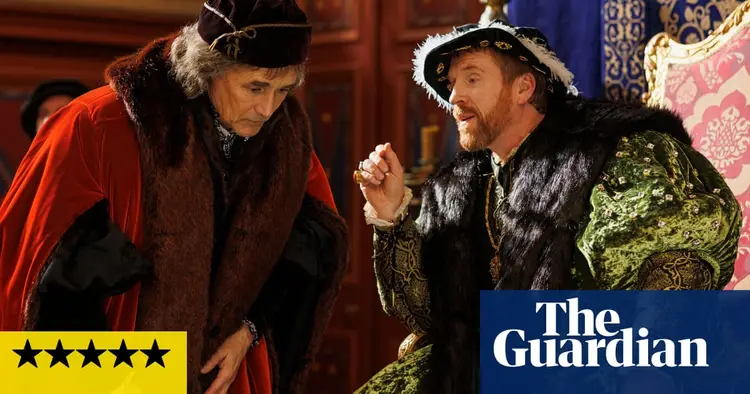Wolf Hall: The Mirror and the Light review – six hours of utter TV magic

It's quite remarkable that it's hard to believe that the adaptation of Hilary Mantel's *Wolf Hall* has been on our screens for nearly ten years. Whether you were lost in the book or enjoying the beautifully crafted series brought to life by writer Peter Straughan and director Peter Kosminsky, the gap between us and the Tudor era seemed to disappear entirely. Time felt irrelevant.
The 2015 adaptation brought to life the first two books of the trilogy—Wolf Hall and Bring Up the Bodies—following the journey of Thomas Cromwell, the son of a Putney blacksmith and a key advisor to Henry VIII. The narrative navigates dramatic events, including the ending of King Henry's marriage to Catherine of Aragon, the break from the Catholic Church, Anne Boleyn's rise to queen, and ultimately her tragic execution, which was orchestrated to pave the way for Jane Seymour and increase the chances of producing a male heir. The story continues in Wolf Hall: The Mirror and the Light, covering the last four years of Cromwell's life. This final volume is just as beautifully crafted, emotionally resonant, and flawless as its predecessors—it is truly stunning.
Straughan and Kosminsky set their opening scene just a few days after Anne's passing, blending the king's (played by Damian Lewis) preparations for his new wife with Cromwell’s recollections of the late queen's last moments. If by any chance you don't remember Claire Foy as the doomed woman struggling to control her fear on the scaffold, here are a few moments to remind you. Time compresses again—linking us to both 2015 and the Tudor court, and connecting Cromwell to the grim act he was responsible for.
Mark Rylance returns as Cromwell, delivering an outstanding performance that is truly unmatched. He conveys a sense of everything while providing no clear answers. Each time you watch him, you gain a deeper understanding of the man tasked with navigating the chaos created by Henry’s unpredictable behavior and fury, yet you also find yourself knowing less. His character feels more human this time, less like an unyielding figure. A stunning moment occurs with the illegitimate daughter of his cherished Cardinal Wolsey, which is both heart-wrenching and mind-blowing. Together with him, you must gather the fragmented pieces of both their stories before you can move forward.
In the opening episode, Cromwell ascends to the position of Lord Privy Seal, ousting Anne's father, Thomas Boleyn, which sparks outrage from both old and new adversaries. He must navigate the loyalty of Henry's daughter Mary to her mother, as well as her mother's faith, aiming to sway her loyalties away from her mother and get her reinstated as a legitimate heir, possibly arranging a marriage in the process. Each decision and choice comes with heavy consequences that need to be carefully considered and strategically managed, all while leaving room for uncertainty to avoid potential disasters. The atmosphere is charged with political, religious, and psychological tension, illuminated by candlelight. And that’s before we see the intrigues of the Pole family unfold. This time, Janet Henfrey is succeeded by Harriet Walter as Lady Margaret; seamlessly transitioning from a modern, menacing matriarch in "Succession" to her 16th-century counterpart, she portrays a character that is quietly intimidating.
Jonathan Pryce reprises his role as Wolsey, showing up for Cromwell as a comforting image or perhaps a reflection of his uncertainties—possibly even his moral compass. This interaction helps Cromwell navigate the complex web of lies and truths in his life, guiding him in determining which paths will benefit him most at different times. And then there's the king, of course—always the king.
The script is a remarkable feat of efficiency and design, managing to convey weighty themes that seem almost impossible to capture. The first adaptation faithfully transformed 1,200 pages of Mantel’s masterful writing into six hour-long episodes, while this one encapsulates the core of her trilogy's final 900 pages. However, since this part of the story is less familiar to the audience, every scene must be packed with information to guide viewers along. Remarkably, we remain engaged throughout; the tension never wanes, and we absorb crucial details just when we need them, enabling us to appreciate each new twist in Cromwell’s increasingly complicated life. This production is an intricate yet easily digestible piece of art, brought to life by an entire cast and crew working in perfect unison, clearly at the height of their talents.
To paraphrase Arthur C. Clarke – any art that is advanced enough feels like magic. And it's available for everyone to experience. A whole six hours of wonder.















































